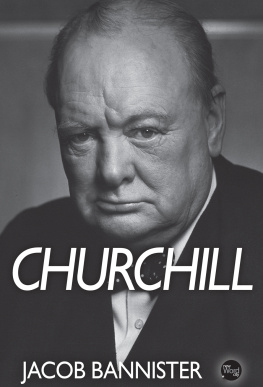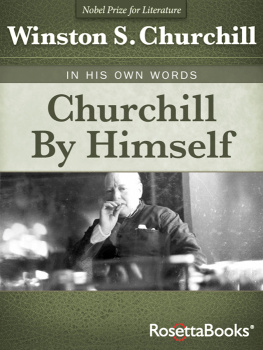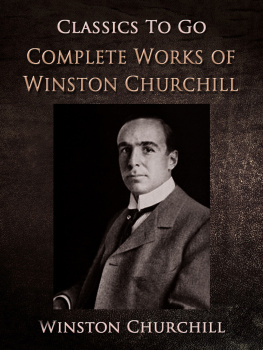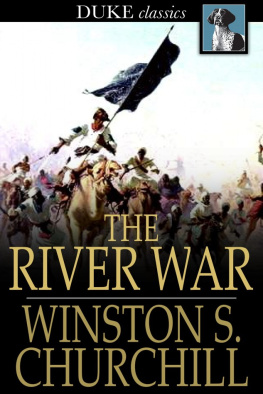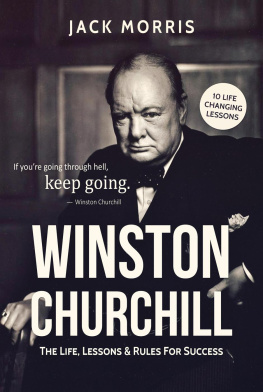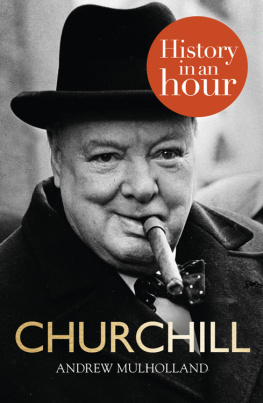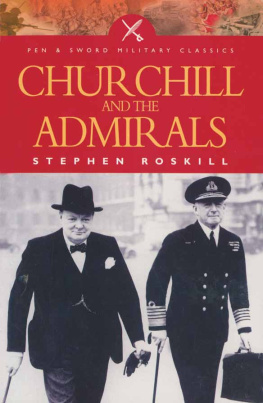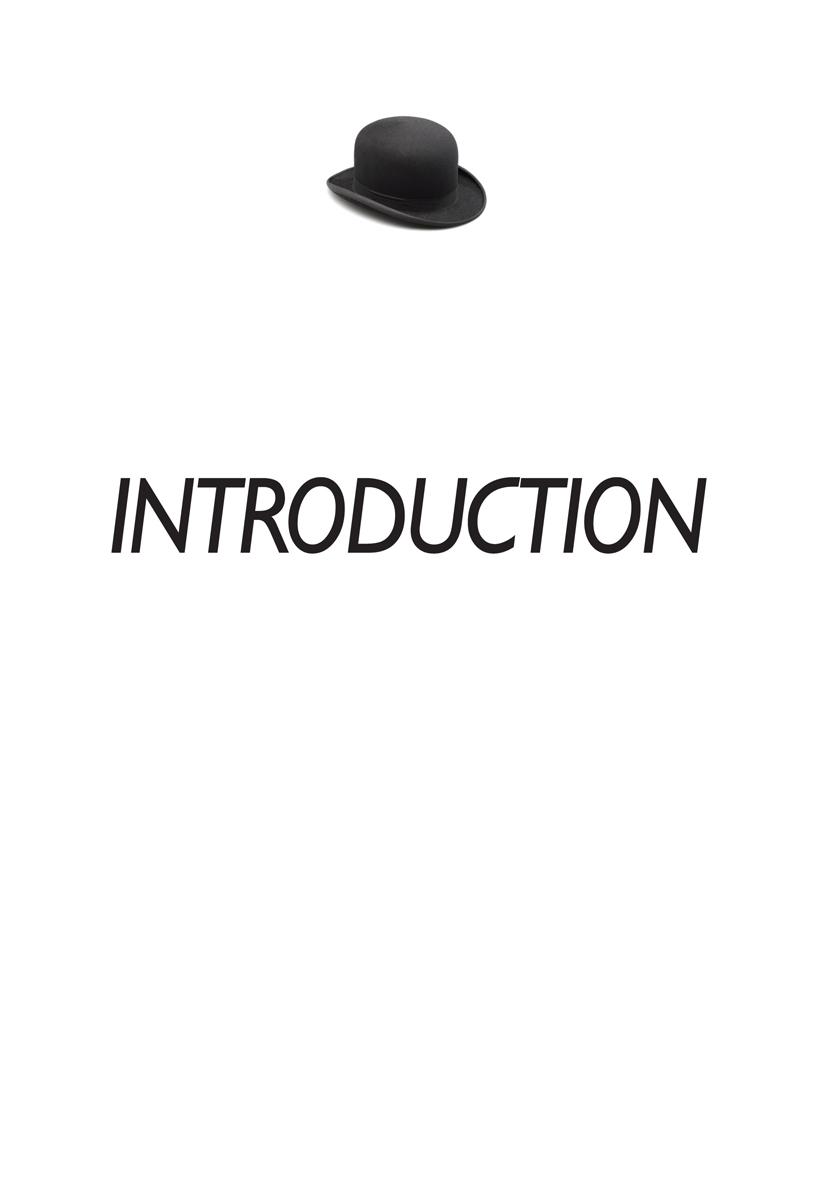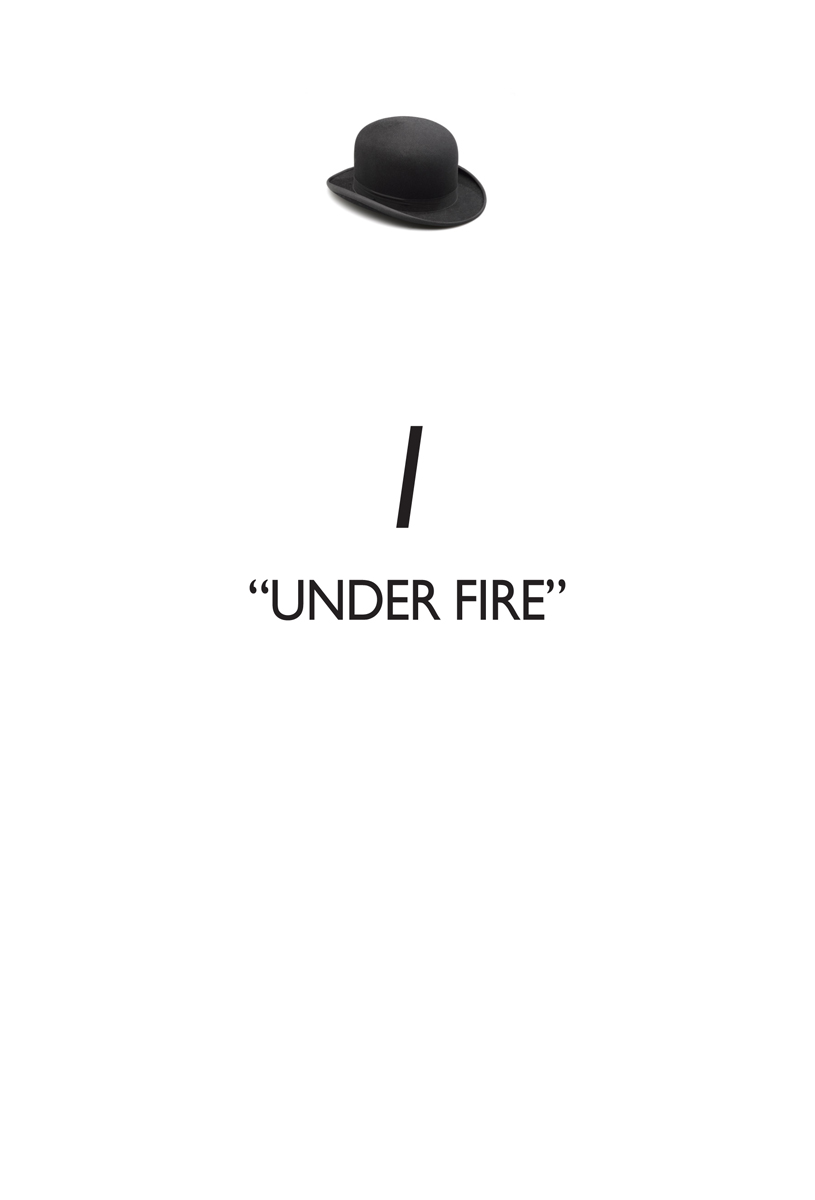Winston Churchills first day as prime minister was a long one, ending at 3:00 a.m. on May 11, 1940. It was a dark hour. Great Britain teetered on the brink of defeat at the hands of Adolf Hitler s forces, which had already overrun most of Europe. A sagacious man might have sensed impending doom, but the sixty-five-year-old Churchill slept well - if not for long. I felt as if I were walking with destiny, he wrote in his memoir of World War II , and that all my past life had been but a preparation for this hour and this trial. So it had, and the way he withstood the trial became the stuff of legend.
Churchill possessed an iron will and a subtle conscience. His staunch patriotism, tenacity, appetite for a fight, and, above all, his towering rhetoric inspired the British people to mount a gallant defense of their island nation. Having set a new bar for national heroism, he earned a place in the pantheon of the worlds greatest leaders.
Churchill, a fearless soldier, was a veteran of countless battles and a rider in the last real cavalry charge of the British armies. He was also a gifted writer, a winner of the Nobel Prize in Literature , whose war reporting made his name and whose books outlived him. A bon vivant who loved his brandy and cigars, he was also a devoted husband whose marriage was a lifelong love affair. By any measure, Winston Churchill was a giant.
But the man was far from perfect. He was a hero, yes, but a human one. He could be petty, irascible, and self-centered; it was bred in his bone that white Englishmen were born to lead the world and all others to be led. His mistakes cost billions of dollars and thousands of lives, but he had courage and a born politicians sense of the public stage. He could outwait adversity and remain a player in the game. And when a bulldog was what England needed, he was there with a ferocious bark and bite. In his first speech as prime minister, in words so bleak and, at the same time, as splendid as any ever uttered under such terrible circumstances, he told his people, I have nothing to offer but blood, toil, tears, and sweat.
That stark message and many later ones - carried the British people through the Nazi Blitz, years of misery, and hundreds of thousands of deaths. As President John F. Kennedy echoed in making Churchill an honorary U.S. citizen in 1963, when Britain had few other weapons, Churchill mobilized the English language and sent it into battle. His words were inseparable from the man, and his eloquence moved millions to accomplish impossible tasks. In the end, Churchill became a regal figure whose life symbolized heroic defiance of tyranny in the face of impossible odds.
Here is his story.
Winston Leonard Spencer Churchill was born two months prematurely at 1:30 a.m. on November 30, 1874, in the splendor of Blenheim Palace , near Oxford in south central England. The grand estate originally belonged to John Churchill , the first Duke of Marlborough, who purchased its 2,000 acres and built a 300-room manor house with money given him by Queen Anne . It was a reward for his victory in the Battle of Blenheim in 1704.
Churchills parents were distinguished in their own right. Lord Randolph Churchill was the talented son of the seventh Duke of Marlborough, but as a younger son, Randolph couldnt inherit the dukedom. However, he became the secretary of state for India and chancellor of the Exchequer . Educated at Eton and Oxford , he was a gifted orator and Parliament member for much of his adult life. Jennie Jerome Churchill was the determined second daughter of Leonard Jerome, a wealthy New York stock speculator and promoter whose ancestors fought on the American side in the Revolutionary War .
The young Winston Churchill was small for his age, sensitive, and emotional. From age two to six, he lived in Dublin, his grandfather having been appointed viceroy to Ireland and employing Winstons father as his private secretary. It was in Dublin that Winstons brother John was born; the two were close and companionable playmates. As was the custom of the times, the boys were raised by a nanny, Elizabeth Anne Everest. She was hired by the Churchills when Winston was a month old. He fondly called her Woomany. Later he wrote, My nurse was my confidante. Mrs. Everest it was who looked after me and tended all my wants. It was to her that I poured out all my many troubles.... His mother, Churchill wrote in My Early Life, shone for me like the Evening Star. I loved her dearly - but at a distance. He was much closer to Mrs. Everest; in the prime ministers office, it was her photo that hung on the wall by his desk.
A month before Churchills eighth birthday, his parents enrolled him at St. Georges, Ascot, a boarding school outside London. He was miserable there. Caned often, he left after two years with bitter memories, having fared poorly both in the classroom and on the athletic field.
Churchills father thought his sons poor grades meant the boy was intellectually slow. He was not. Winston did well at subjects he liked, poorly at those he did not. Where my reason, imagination, or interest were not engaged, he later wrote, I would or could not learn.
In 1883, Churchill transferred to a boarding school run by two women in Brighton in southwest England. It was smaller than St. Georges and friendlier, with teachers who recognized his strengths. He spent three years there, and despite a bout of double pneumonia, he grew healthier and stronger. Churchills mother rarely visited, though he wrote letters begging her either to come to the school or allow him to come home. His relationship with his father was even chillier; he once remarked that they barely spoke to each other.
After graduating in 1888, Churchill enrolled at Harrow , a public school that, in the British sense, meant private. His father chose Harrow over the more prestigious Eton because it was a feeder school for the Royal Military College at Sandhurst . Lord Randolph had long imagined that the army might be his sons destiny. Surveying one of the boys elaborate toy-soldier battlefields and envisioning it as a clue to his future, Randolph suggested that a military career might suit him. Young Winston was elated.
Even among English schools, Harrow was old, having received its Royal Charter in 1572, though its roots went back to the thirteenth century. It clung to tradition. Students were required to participate in school-wide choral performances, and many also played sports. The game of squash was invented at Harrow, and the school helped to codify the formal rules of soccer. The students wore uniforms - white shirts with black ties and light-gray trousers. In cold weather, the boys added a blue sweater or a coat called a bluer. They also wore the Harrow Hat, a straw boater encircled by a blue band. On Sundays and formal occasions, the students donned tailcoats and pinstriped pants, sometimes accompanied by top hats and canes.
Churchill won a fencing championship at Harrow and earned high marks in history and English. Under the tutelage of his English teacher, Robert Somervell, Churchill became, in the words of biographer Paul Johnson , not merely adept but masterly in his use of words. And he loved them.
Churchill was also beginning to think about his future. His friend Murland de Grasse Evans, who was knighted by Queen Elizabeth II and lived to see Churchill become prime minister, recalled a conversation with Winston about their ambitions. Evans asked if Churchill would join the army, and Churchill said it was likely. He also said that whatever he did, he was sure to have great adventures.

